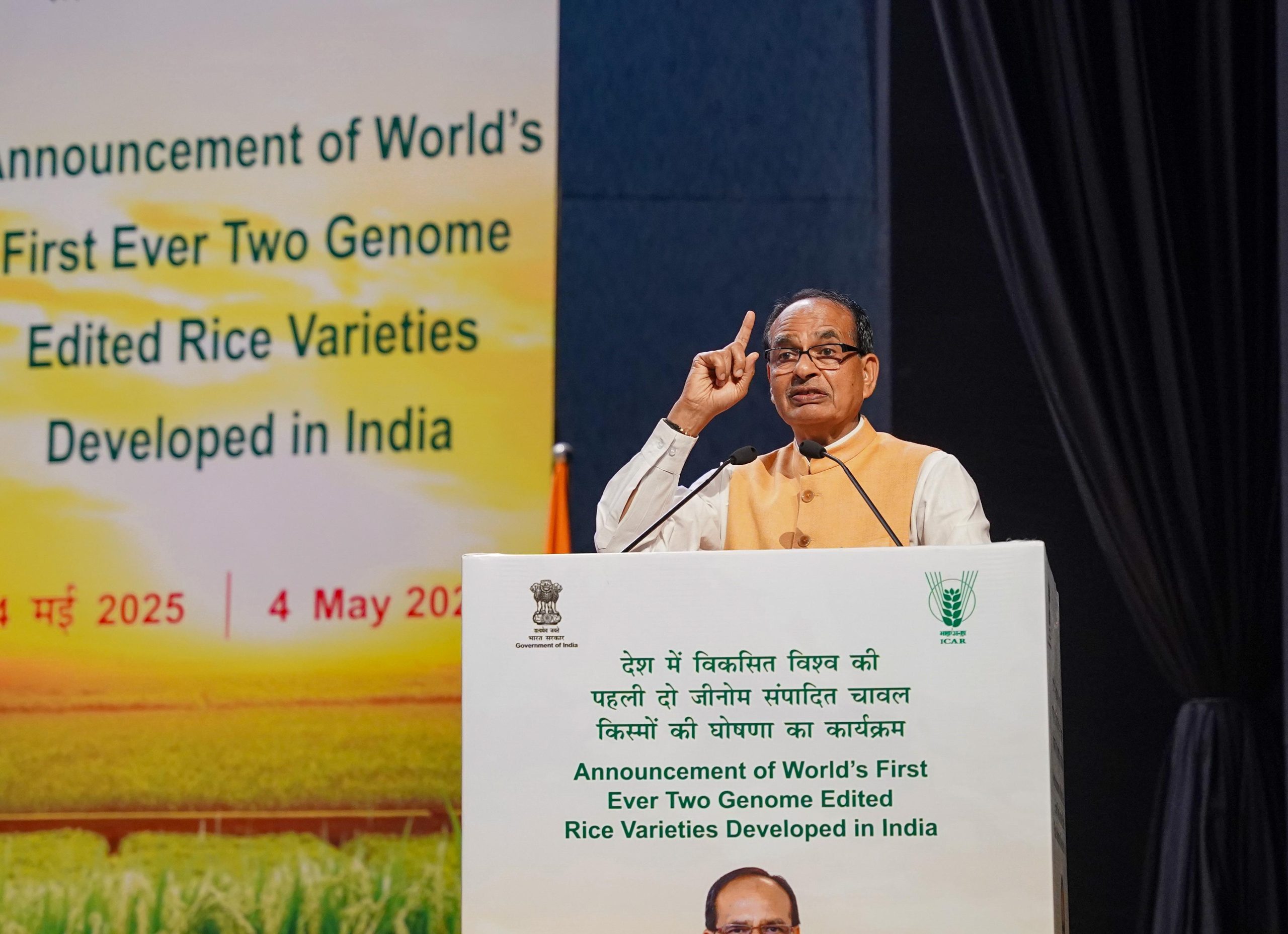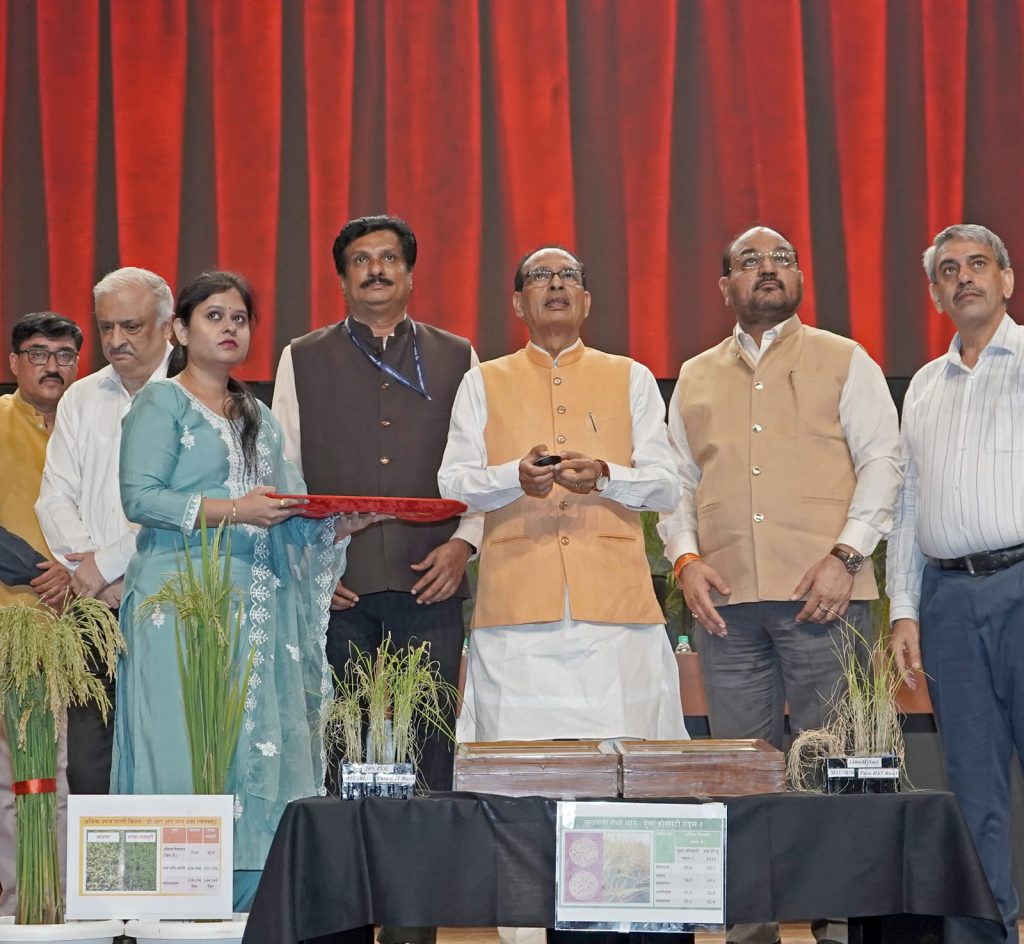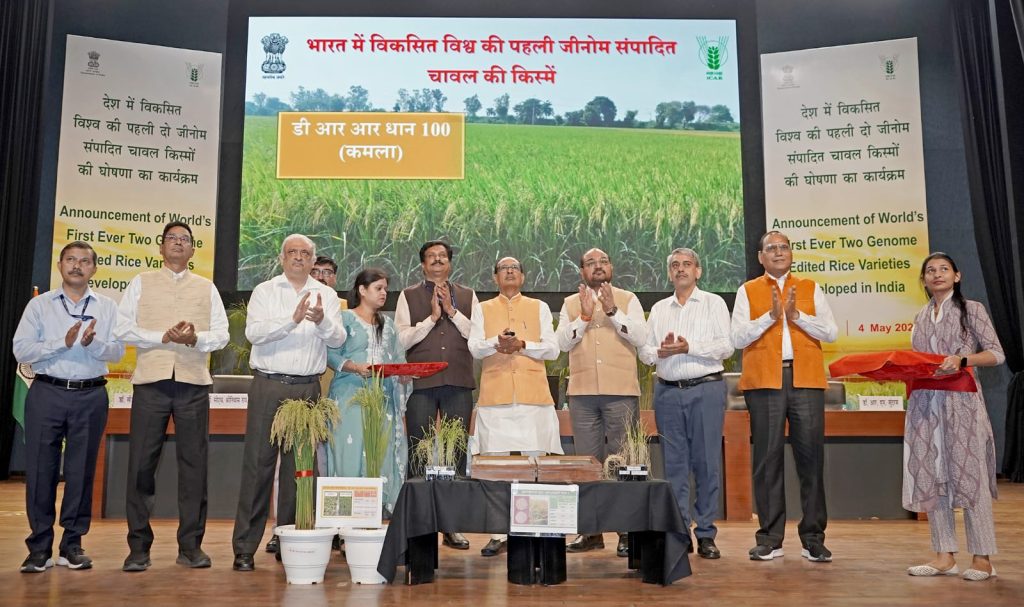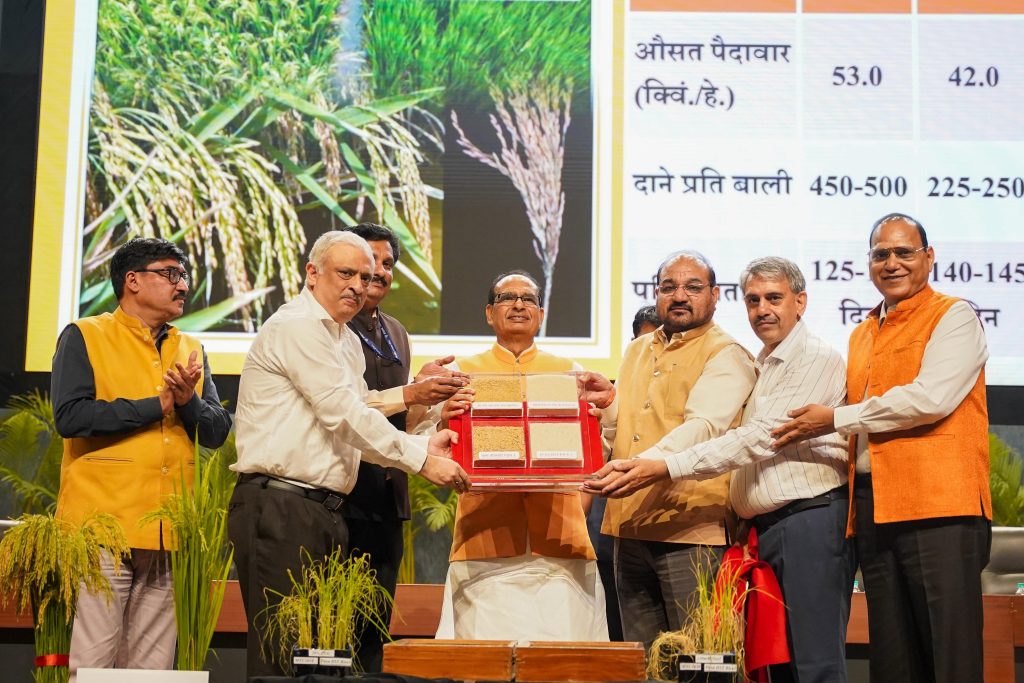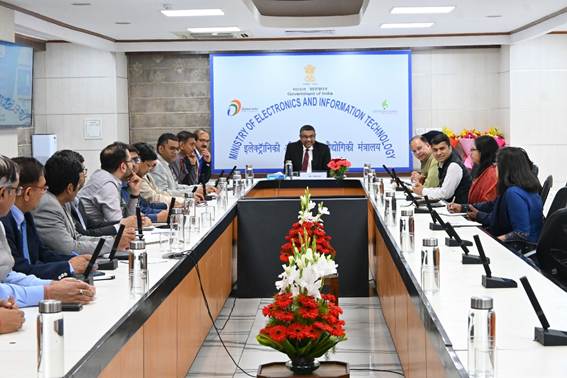India has become the first country in the world to develop genome-edited rice varieties, Union Agriculture and Farmers Welfare Minister Shivraj Singh Chouhan announced on Sunday.
Developed by the Indian Council of Agricultural Research (ICAR), the new rice varieties — DRR Rice 100 (Kamala) and Pusa DST Rice 1 — are expected to significantly increase crop yields, improve climate resilience, and reduce water usage.
Calling it a “historic milestone in scientific research,” Chouhan, speaking at an event in New Delhi, credited Prime Minister Narendra Modi for encouraging the adoption of modern agricultural technologies to tackle challenges in the sector.
“Under the leadership of Prime Minister Modi, India’s vision for a developed nation is being realized, and farmers are moving towards prosperity. During the Azadi Ka Amrit Mahotsav, Prime Minister Modi had called upon farmers to adopt modern techniques to overcome agricultural challenges. Inspired by his words, ICAR scientists have made exceptional achievements in the field of agriculture with the creation of these new varieties,” Chouhan said.
He emphasized that the genome-edited rice varieties are not only expected to increase yields but also reduce environmental impact by saving irrigation water and lowering greenhouse gas emissions.
The event was also addressed by eminent scientists including Dr. Devendra Kumar Yadava, Deputy Director General (Crop Science), ICAR; Dr. R.M. Sundaram, Director, ICAR-Indian Rice Research Institute, Hyderabad; Dr. Ashok Kumar Singh, Former Director, ICAR; and Dr. C.H. Srinivas Rao, Director, ICAR-IARI.
Developed using CRISPR-Cas-based genome editing technology, these rice varieties involve no foreign DNA insertion and have been approved under India’s biosafety guidelines for general crops under SDN 1 and SDN 2 categories. They mark a groundbreaking step toward sustainable and climate-resilient agriculture.
“These rice varieties are not just feeding our people—they’re setting global standards in agricultural innovation,” Chouhan added.
He also introduced the “Minus 5 and Plus 10” formula, aimed at optimizing land use. The concept involves reducing the area under rice cultivation by five million hectares while increasing rice output by ten million tonnes in the same area. Chouhan said this would free up land for the cultivation of pulses and oilseeds, which are essential for ensuring nutritional security and reducing import dependency.
The development of these varieties began in 2018 under the National Agricultural Science Fund, with a focus on improving two popular rice varieties—Samba Mahsuri and MTU 1010. The result was two advanced rice types that promise a 19% increase in yield, a 20% reduction in greenhouse gas emissions, and the conservation of 7,500 million cubic meters of irrigation water.
DRR Rice 100 (Kamala), developed by ICAR-IIRR Hyderabad, is based on Samba Mahsuri. It matures in approximately 130 days—20 days earlier than the original, helping to save water and fertilizer while reducing methane emissions. The variety features strong stalks and maintains the grain quality of its parent.
Pusa DST Rice 1, developed by ICAR-IARI New Delhi, is based on MTU 1010. It performs remarkably well in saline and alkaline soils, showing a production increase ranging from 9.66% to 30.4% with the potential for up to 20% higher yields in challenging environments.
These breakthrough varieties are recommended for cultivation in states including Andhra Pradesh, Telangana, Karnataka, Tamil Nadu, Kerala, Chhattisgarh, Maharashtra, Madhya Pradesh, Odisha, Bihar, Jharkhand, Uttar Pradesh, and West Bengal.
“This scientific success is a giant leap toward achieving the Prime Minister’s goal of doubling farmers’ income and building an Atmanirbhar Bharat,” Chouhan said. “This is not merely a research milestone—it is a gift to Bharat’s annadata.”










